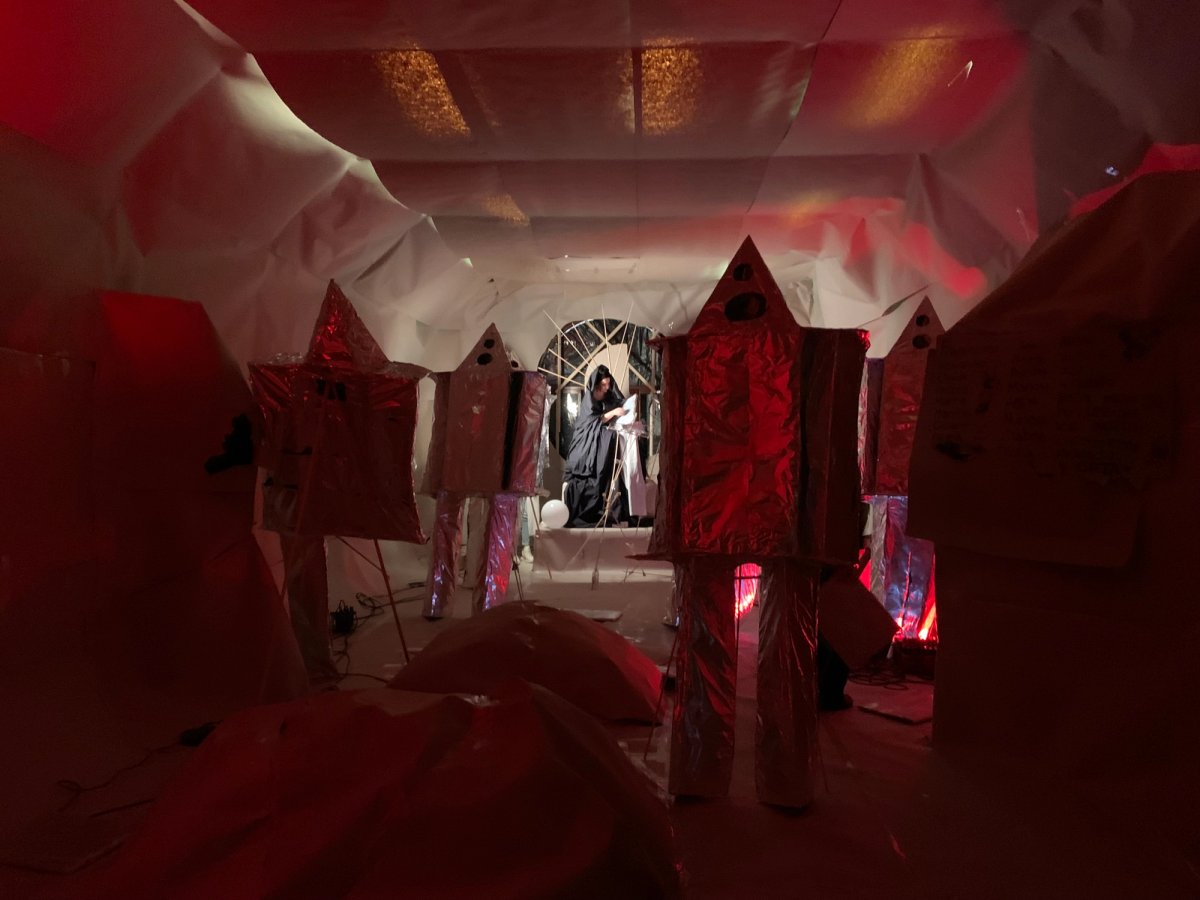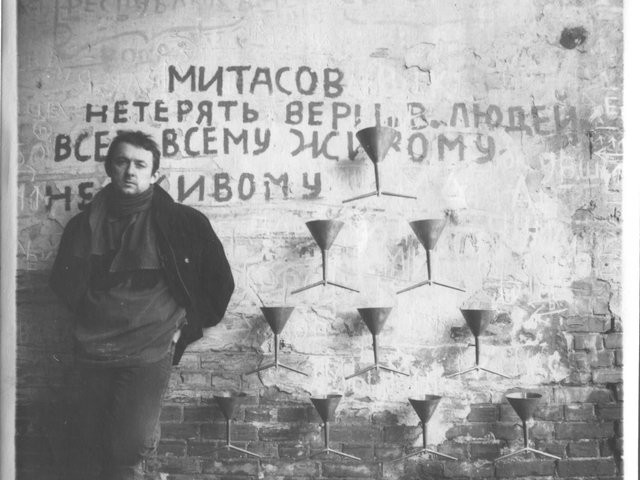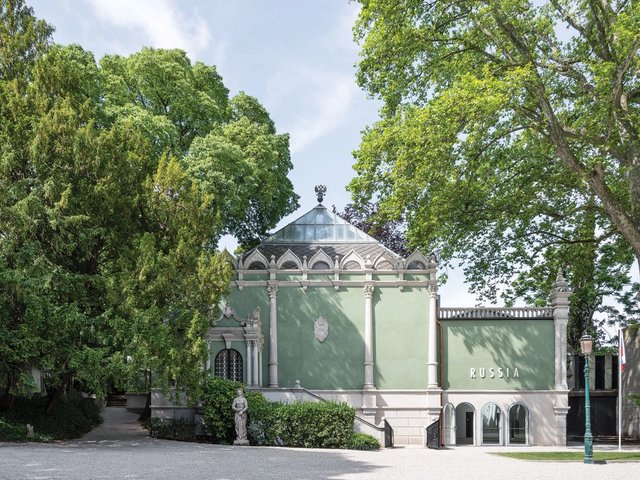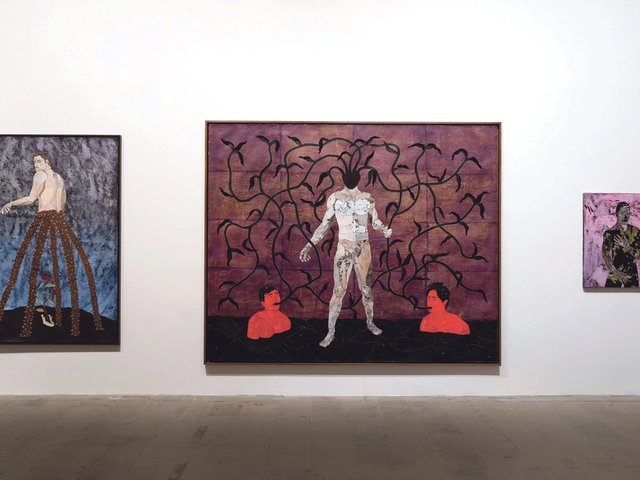Kazakhstan's national pavilion plans during the opening of the Venice Biennale this week have been delayed due to the war in Ukraine. The former Soviet Republic in Central Asia, which retains close political ties to Moscow, is due to exhibit at the Venice Biennale for the first time—a significant moment for a country that has invested heavily in its cultural infrastructure in recent years but has been rocked by civil unrest and bloodshed over the course of the last few months.
But the invasion of Ukraine has meant a number of works and materials needed to build the collective’s long-planned installation could not get to Venice in time. Vehicles carrying art, materials and cargo are currently stuck in long queues at the Georgian border, having being rerouted as the war unfolded. As a result, the Kazakhstan Pavilion at the Spazio Arco in Dorsoduro will be open during the vernissage, but will stand largely empty.
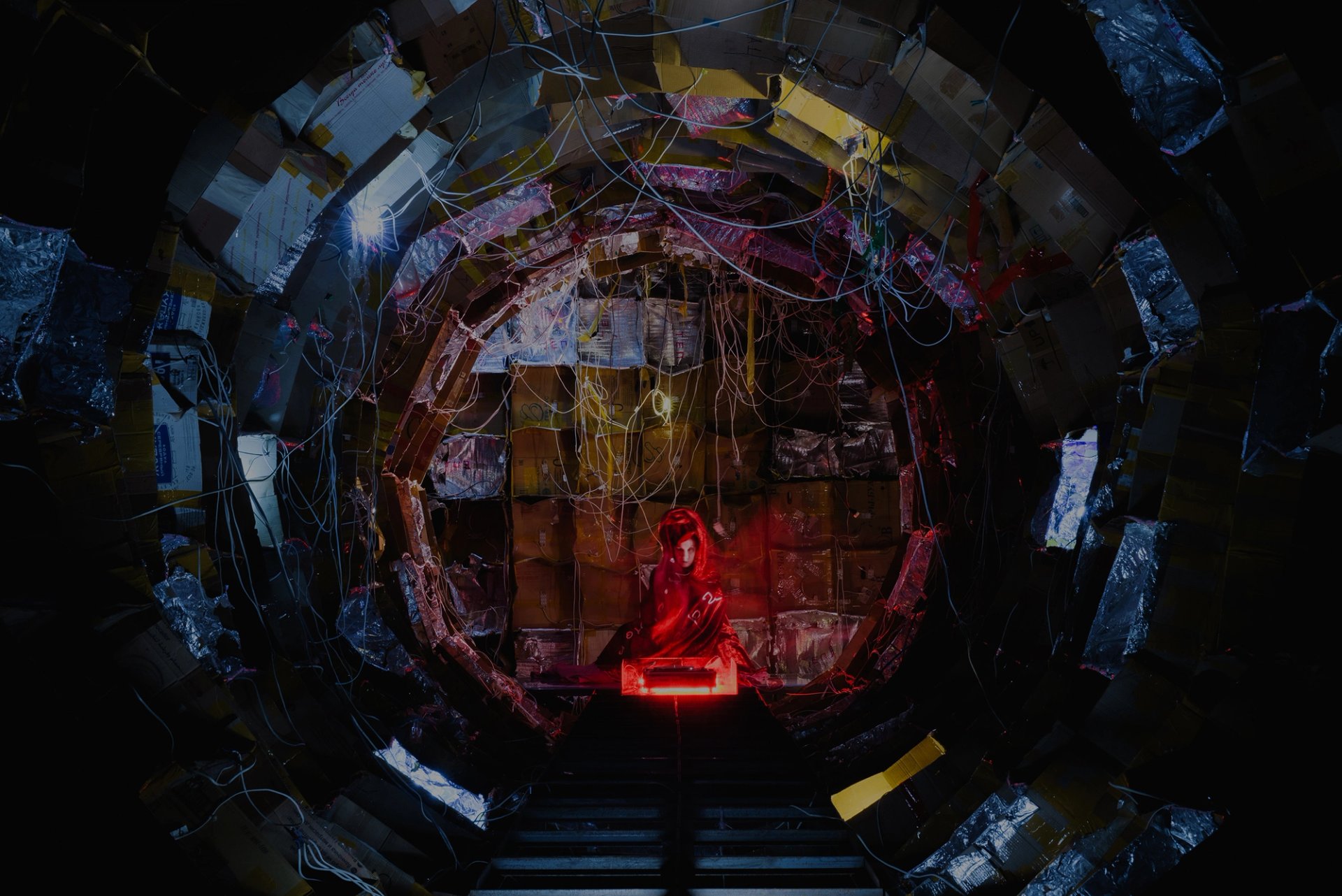
ORTA collective,Alexandra Morozova inside the Circular Cardboard-Light Generator of Genius (2022) Photo: ORTA collective © ORTA collective / Courtesy of the Artist
The pavilion is due to show work by ORTA collective, an artist group formed in 2015, comprised of the Kazakh artists Alexandra Morozova, Rustem Begenov, Darya Jumelya, Alexandr Bakanov and Sabina Kuangaliyeva. The pavilion’s commissioner is Meruyert Kaliyeva who, in a joint statement with the collective, said: “We are of course incredibly disappointed, but compared to the greater tragedies unfolding elsewhere in the world, our own setbacks feel very minor.”
The collective’s long-planned installation, which was due to be titled LAI-PI-CHU-PLEE-LAPA Centre for the New Genius, will not be viewable in its entirety until 17 May, the organisers hope—a month after the opening of the Biennale. The ORTA collective are now busy improvising, and can be seen building a temporary set for a series of planned performances titled Spectacular Experiments with locally sourced materials salvaged from the Venice cityscape. The spontaneously-created set will “form the foundation for the development of the finished project," they say. Their schedule of performances will run as planned.
The pavilion is dedicated to the memory and legacy of Sergey Kalmykov, the Russian avant-garde painter who died in a psychiatric unit in 1967, and was largely unheralded in life. "Sergey Kalmykov would not have been defeated by these setbacks," the collective said. "Channeling his resourcefulness, we are continuing to work tirelessly to finish the project as quickly as possible, and to show the world the great programme of the art of the New Genius. We are so grateful to the people on the ground in Venice who have been so helpful and generous in supplying materials."
This is not the first attempt Kazakhstan has made at an inaugural Venice pavilion: in 2019, its exhibition was controversially cancelled just two months before the Biennale took place due to “last-minute budget cuts”, with its curators informed of their dismissal via a Facebook post. Sources at the time attributed the pavilion’s cancellation to government corruption.
This year, the pavilion had been funded by private donations from Kazakhstani entrepreneurs and philanthropic organisations, notably the Saby Charitable Foundation, Nurlan Smagulov Foundation, the clothing distributor G&G and the Marusya Assaubayeva Foundation.
Kazakhstan has been rocked by civil unrest related to government corruption and economic turbulence in recent months. Protests in the country’s capital Nur-Sultan, formerly Astana, have led to violent police crackdowns.
“We couldn’t leave our house for eight days for fear of being shot”, said Rustem Begenov, one of ORTA’s founders, in a recent interview with The Art Newspaper. “We were messaging each other under gunfire, hearing the bullets from outside our window—at points we weren’t sure if we were going to be able to actually go ahead with the pavilion”.


